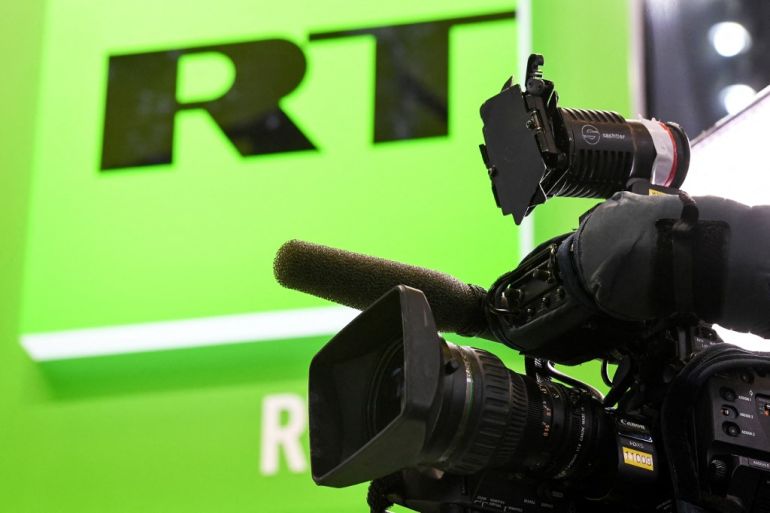Germany bans German-language Russian state broadcaster RT

The German broadcasting regulator has banned the transmission of the German-language channel of Russian state broadcaster RT, amid rising tensions between Moscow and the West.
The transmission of the channel “RT DE” was “prohibited because it does not have the necessary broadcasting licence”, the regulator’s authorisation and oversight commission said in a statement on Wednesday.
Keep reading
list of 3 itemsOn Ukraine’s front line, Britons battle Russia-backed separatists
Putin says US is using Ukraine as a ‘tool’ to contain Russia
The broadcaster was blocked from Europe’s satellite network on December 22 at the request of German authorities, less than a week after going on air, but was still available over the internet and via a mobile app.
The Kremlin on Thursday criticised the German move, and the foreign ministry said reciprocal measures were imminent.
“The situation is absolutely obvious. A Russian media outlet, or rather an international media outlet, is banned from broadcasting in Germany,” Kremlin spokesman Dmitry Peskov told reporters.
“This is nothing but an infringement on freedom of speech,” he added.
His remarks came after the Russian foreign ministry said that it would announce retaliatory measures later on Thursday without providing any details.
The ministry has said the measures will affect German media accredited in Russia and internet platforms that have deleted the channel, an apparent reference to YouTube.

RT said it has headquarters in Moscow, and has pointed to a Serbian licence for cable and satellite transmission, which it says allows it to be broadcast in Germany.
However, the regulator said the channel’s operator, based in Berlin, does not have a “legitimate permit under European law”.
Russia Today
Launched in 2005 as “Russia Today”, state-funded RT has expanded with broadcasters and websites in languages including English, French, Spanish and Arabic.
It has been accused by Western countries of distributing disinformation and Kremlin-friendly propaganda.
It has generated controversy in many countries, including the United States, where it was required to register as a “foreign agent”, and in the UK, where authorities have threatened to revoke its broadcasting licence.
The channel has been banned in several countries, including the ex-Soviet republics of Lithuania and Latvia.